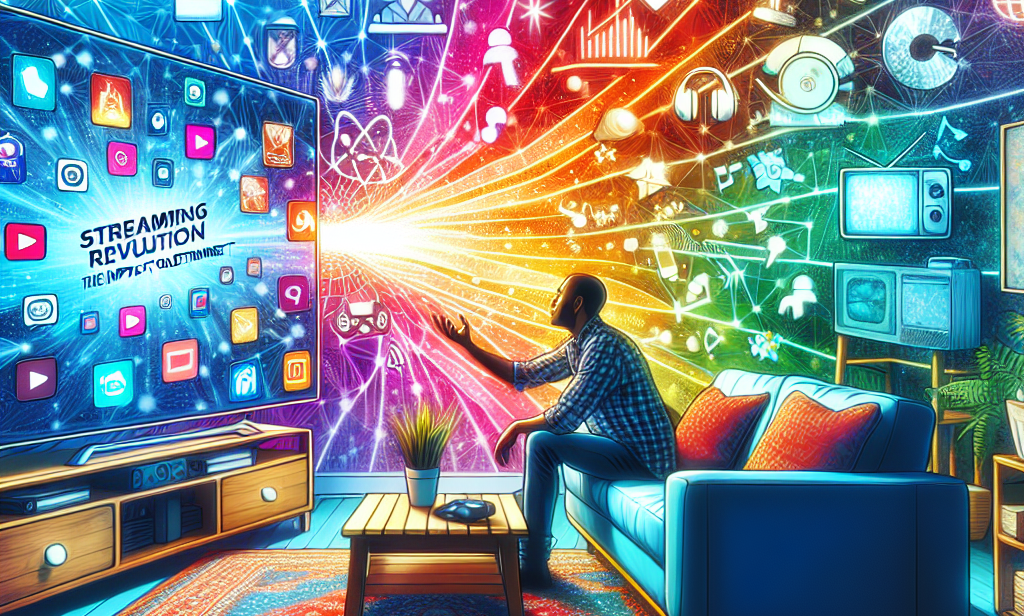Streaming Revolution: The Internet’s Impact on Entertainment

Entertainment has undergone a seismic transformation over the past two decades. What was once limited to television schedules, DVDs, and theater releases has now become an on-demand experience accessible through the internet. The streaming revolution has disrupted traditional entertainment models, reshaping how audiences consume movies, TV shows, music, and even live events. This article explores the rise of streaming, its influence on various entertainment industries, and the implications of this digital shift.
The Rise of Streaming Platforms
The early 2000s marked the beginning of a transition from physical media to digital distribution. Services like YouTube (2005) and Netflix’s streaming service (2007) laid the groundwork for a new content ecosystem where users could access entertainment instantly. Over time, giants like Spotify, Disney+, Apple TV+, and Amazon Prime Video joined the fray, creating a competitive landscape that caters to diverse audiences worldwide.
Key Factors Driving the Streaming Boom:
- Convenience: Consumers can watch or listen to content anytime, anywhere, without waiting for scheduled programming.
- Personalization: Advanced AI algorithms recommend content based on user preferences.
- Affordability: Subscription-based models offer vast libraries of content at lower costs compared to purchasing individual movies or albums.
- Global Reach: Streaming services break geographical barriers, allowing access to international content.
Impact on the Film & TV Industry
Streaming has fundamentally altered the film and television industry by shifting revenue models and production strategies.
- Decline of Traditional TV: Cable networks face dwindling subscriptions as viewers prefer streaming services with ad-free, on-demand content.
- Rise of Original Content: Platforms like Netflix and HBO Max now produce exclusive films and series, competing directly with Hollywood studios.
- Shift in Box Office Trends: Theaters struggle as movies release simultaneously online, impacting traditional box office revenue.
Music Streaming & the Digital Soundscape
The music industry has seen an even more dramatic transformation. Services like Spotify, Apple Music, and YouTube Music replaced CDs and digital downloads as the primary way people consume music.
- Democratization of Music Distribution: Artists can upload their music directly to streaming platforms, bypassing traditional record labels.
- Revenue Shifts: Streaming royalties offer lower payouts per play compared to physical sales, challenging artists to adapt their income models.
- Playlist Culture: Curated playlists shape listener habits, sometimes more than radio stations ever did.
Live Entertainment & Gaming in the Streaming Era
Beyond recorded content, streaming has impacted live entertainment and gaming in significant ways.
- Live Concert Streaming: Virtual concerts, powered by services like Twitch and YouTube Live, allow fans to experience performances remotely.
- Esports & Gaming: Platforms like Twitch have turned video gaming into a spectator sport, creating a new industry of gaming influencers and competitive leagues.
- Social Engagement: Audiences can interact with creators through live chats, polls, and real-time discussions, fostering stronger fan communities.
Challenges & The Future of Streaming
Despite its success, streaming faces challenges, including:
- Content Saturation: Too many platforms force consumers to choose subscriptions, increasing competition.
- Data Privacy Concerns: Personalized recommendations rely on vast amounts of user data, raising ethical concerns.
- Sustainability of Revenue Models: Subscription fatigue and advertising-based models may shift industry trends.
Looking ahead, streaming technology will likely evolve through virtual reality (VR), artificial intelligence (AI), and blockchain innovations—further transforming how we engage with entertainment.
Conclusion
The streaming revolution has reshaped entertainment in ways unimaginable a decade ago. From movies and music to live gaming, digital platforms have democratized content, offering audiences worldwide unprecedented access to entertainment. As technology advances, streaming will continue to define the future of how we consume, create, and share media.






